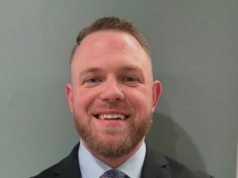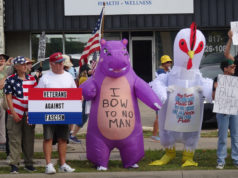Texas Monthly’s glowing, in-depth feature story on outgoing Houston Mayor Bill White (“The Great White Hope,” December 2009) describes a hard-working, go-getting, populist politician who comes across as fairly remarkable in this modern era of bought-and-sold politicians, lobbyists, and corporate CEOs.
Monthly writer S.C. Gwynne credits White with deftly handling the large influx of Hurricane Katrina evacuees, developing a citywide plan that “becomes the model for the federal Disaster Housing Assistance Program, which profoundly changes the way the country will handle similar emergencies in the future.”
The story also describes a mayor who drives around taking notes on potholes and illegal dump sites and then reporting them to city heads for swift attention. White once confronted two guys who were illegally dumping construction refuse, and the mayor stayed with them until police arrived.
Against advice, White has taken on major issues “that carried considerable political risk,” and has “banned, for all practical purposes, lobbyists from city hall and from any involvement in city contracts, thereby cleaning up what many had come to call ‘the trough,’ ” Gwynne wrote.
One of the most interesting examples of White’s devotion and determination to Houston is in his approach to air pollution emitted by the energy industry.
“Though White prefers to govern by a sort of gentle consensus, he is fully capable of reverting to his more aggressive, inquisitor-like, trial-lawyer persona,” Gwynne’s article said. “No one felt this more than the refining and petrochemical companies of the Houston Ship Channel, who became the target of White’s ire because of their emissions of harmful pollutants. In the summer of 2004, White determined that Texas Petrochemicals was emitting unusually high levels of the chemical 1,3-butadiene and in early 2005 announced that he was going to sue the company. Texas Petrochemicals sought refuge with the State of Texas, which assured Houston that it had jurisdiction but then failed to come up with an enforceable agreement. White was furious. He indicated on the city council agenda that the city was retaining a high-profile plaintiff’s lawyer to go after ‘certain polluters.’
“ ‘The next day our lawyer got a call from the company’s lawyer saying, ‘What do you want?’” says Elena Marks, White’s director of health and environmental policy. In the next few months White’s team worked out a settlement with the company to reduce its emissions over time that was contractual and enforceable. ‘They got a lot of grief from their fellow industry members, who said, ‘You caved,’ says Marks. ‘But they were going to lose a big, ugly lawsuit.’
White then went after Lyondell Chemical, the city’s largest emitter of the carcinogen benzene, which is a substance identified as one of the pollutants associated with gas drilling in the Barnett Shale.
“Unable to force compliance under city laws, he tried an inventive strategy: He challenged Lyondell’s operating permit from the Texas Commission on Environmental Quality. ‘If the company believes that it’s just fine to put tons and tons of benzene in the air,’ White told the Chronicle last year, in full trial lawyer mode, ‘then we would like to hear what scientific evidence they have that benzene is good for you.’ The matter is still pending.
“In July 2008 White went even further: He challenged the Environmental Protection Agency’s basic methods of estimating levels of pollutants. He insisted that because of the EPA’s flawed methods, emissions of harmful chemicals in Houston were many times what they were reported to be. The EPA’s reply, which made national news, came in April 2009. To the amazement of many, the agency agreed with White and promised to overhaul the way it calculates cancer-causing emissions from plants.”
Now, compare White’s behavior with that of Mayor Mike Moncrief, who is more enthusiastic about encouraging and protecting the oil and gas industry inside Fort Worth city limits.












Don’t forget another mayor! Mayor Calvin Tillman just issued a Cease and Desist letter to the industry polluters in his town of DISH.
It’s also important to note that the fugitive emissions are not new or “breaking” news. Peggy Heinkel-Wolfe reported about them in May of 2005. http://www.dentonrc.com/sharedcontent/dws/drc/localnews/stories/052806drcozone.2dedb11b.html
The emissions were allowed to continue and they have endangered public health and safety.
Here’s Fort Worth Weekly writer Peter Gorman’s story that includes info about DISH Mayor Tillman:
https://www.fwweekly.com/index.php?option=com_content&view=article&id=2104:sacrificed-to-shale&catid=30:cover-story&Itemid=375
I’ll bet a Just Say NO to Gas Drilling bumper sticker that Mayor Calvin gets a Texas Monthly cover story before this is all over. Couldn’t happen to a nicer guy.
I know y’all reported on DISH but I wanted to put the Cease & Desist comment here too. =) So glad you added that link.
Thank you!
FW Weekly is super!
1,3-butadiene is pretty nasty for human health, but benzene is a known carcinogen. And, that’s been known for decades.
Controlling both of those is in the best interest of residents. And, many of the controls for these types of pollution pay for themselves fairly quickly with recovered chamicals that would otherwise be dumped in the air..